What are the key policy and funding issues for rural Ireland that you are pushing for in programme for government negotiations?
“I don’t have any red lines, but I do have a bottom line. For rural Ireland that bottom line is a balance of development between the regions.
“The regions have to play to their strengths, so agriculture and food production are pivotal. We need to provide a certain amount of off-farm employment to help sustain the family farm structure. This is especially true over in the west and northwest, where farms are typically smaller.
There isn’t a snowball’s chance of rural regeneration if broadband is not there
“While we have been hearing about the decline in farming incomes and the potential collapse of the family farm model for decades, it’s happening faster now. We have to take action to prevent the disappearance of a way of life.
“Access to high-speed broadband is essential. I would be concerned that more remote areas down at the bottom of the rollout plan will eventually get dropped off. There isn’t a snowball’s chance of rural regeneration if broadband is not there. Many of our rural towns are dying. It’s only when you walk down the streets as opposed to driving through that you really notice how many shopfronts are boarded up.
“Motorways are sucking people into Dublin rather than jobs out of the capital. If we’re not plugged into the digital economy, we can’t progress.
“And we have to generate our own jobs. The days of the large companies coming in to regions seem to be over. However, that requires incentives for startups. A phased rates reduction for new businesses would be a start. There is another linked problem, that local authorities are starved of funding from central government. It’s a delicate balance, strengthening one of the links in the chain without weakening another one.”
While Marian Harkin was previously a TD from 2002-2007, she served as an MEP for 15 years. Does the European Parliament’s committee-based non-partisan system of governance hold any lessons for the current domestic political situation?
“First of all, our system of PR does not lend itself to co-operative politics. It’s a good system, but it does make government formation more difficult and challenging.
I had forgotten how political our domestic election is. In Brussels, nothing gets through unless you can find compromises and consensus.
“The people made their decision. It’s up to us politicians to make this work.
The next government has to acknowledge the call from the electorate for change
“We’re at a sea change. It’s very difficult for formerly large political parties to adjust, and to understand that this new situation is not going to change in the short or probably medium term.
“In my opinion, given that FF and FG have said that they won’t work with Sinn Féin, the onus is on them to work together. The next government has to acknowledge the call from the electorate for change. They need to make it clear that they are working to fix health and housing.
“But change wasn’t just the upsurge in support for Sinn Féin, it was also the number of independents that were returned across the country. The election was called a tsunami for SF but there was also an avalanche of Independents. The presence of Independents in the next government can represent that voice of change.”
Harkin’s stance on key ag issues
CAP convergence: “I support convergence, we have to make payments more equitable. That has always been my stance.”
Front-loading of payments: “This is linked to convergence. Front-loading is a positive tool that can be used. It may be it or convergence or a combination of both.
Live exports: “I support live exports.”
The nitrates derogation: “A difficult one. I dealt with this in the European Parliament. We have to ask ourselves what are we trying to achieve here. What’s the problem, and how do we address it? We often need short-term solutions but we also need longer-term solutions. We have to protect our waterways and our soils. Excessive fertilizer use is not acceptable. We need to look at cause and effect, and how we move forward sustainably.”
Forestry: “I support sustainable forestry, but there are two significant issues - the ownership of forestry and forestry land, and the overuse of sitka spruce. The description of Leitrim as ‘the national sacrifice zone for sitka spruce’ is accurate, but it’s not just a Leitrim problem. The survey carried out in Leitrim showed a disturbing trend where investors from outside the area, and the country, own a large proportion of newly planted land. That must be addressed as a matter of urgency.”
Read more
Change to BPS ‘removes restrictions’ for farmers with forestry – IFA
CAP budget proposals ‘do not go far enough’ for farmers – Varadkar
What are the key policy and funding issues for rural Ireland that you are pushing for in programme for government negotiations?
“I don’t have any red lines, but I do have a bottom line. For rural Ireland that bottom line is a balance of development between the regions.
“The regions have to play to their strengths, so agriculture and food production are pivotal. We need to provide a certain amount of off-farm employment to help sustain the family farm structure. This is especially true over in the west and northwest, where farms are typically smaller.
There isn’t a snowball’s chance of rural regeneration if broadband is not there
“While we have been hearing about the decline in farming incomes and the potential collapse of the family farm model for decades, it’s happening faster now. We have to take action to prevent the disappearance of a way of life.
“Access to high-speed broadband is essential. I would be concerned that more remote areas down at the bottom of the rollout plan will eventually get dropped off. There isn’t a snowball’s chance of rural regeneration if broadband is not there. Many of our rural towns are dying. It’s only when you walk down the streets as opposed to driving through that you really notice how many shopfronts are boarded up.
“Motorways are sucking people into Dublin rather than jobs out of the capital. If we’re not plugged into the digital economy, we can’t progress.
“And we have to generate our own jobs. The days of the large companies coming in to regions seem to be over. However, that requires incentives for startups. A phased rates reduction for new businesses would be a start. There is another linked problem, that local authorities are starved of funding from central government. It’s a delicate balance, strengthening one of the links in the chain without weakening another one.”
While Marian Harkin was previously a TD from 2002-2007, she served as an MEP for 15 years. Does the European Parliament’s committee-based non-partisan system of governance hold any lessons for the current domestic political situation?
“First of all, our system of PR does not lend itself to co-operative politics. It’s a good system, but it does make government formation more difficult and challenging.
I had forgotten how political our domestic election is. In Brussels, nothing gets through unless you can find compromises and consensus.
“The people made their decision. It’s up to us politicians to make this work.
The next government has to acknowledge the call from the electorate for change
“We’re at a sea change. It’s very difficult for formerly large political parties to adjust, and to understand that this new situation is not going to change in the short or probably medium term.
“In my opinion, given that FF and FG have said that they won’t work with Sinn Féin, the onus is on them to work together. The next government has to acknowledge the call from the electorate for change. They need to make it clear that they are working to fix health and housing.
“But change wasn’t just the upsurge in support for Sinn Féin, it was also the number of independents that were returned across the country. The election was called a tsunami for SF but there was also an avalanche of Independents. The presence of Independents in the next government can represent that voice of change.”
Harkin’s stance on key ag issues
CAP convergence: “I support convergence, we have to make payments more equitable. That has always been my stance.”
Front-loading of payments: “This is linked to convergence. Front-loading is a positive tool that can be used. It may be it or convergence or a combination of both.
Live exports: “I support live exports.”
The nitrates derogation: “A difficult one. I dealt with this in the European Parliament. We have to ask ourselves what are we trying to achieve here. What’s the problem, and how do we address it? We often need short-term solutions but we also need longer-term solutions. We have to protect our waterways and our soils. Excessive fertilizer use is not acceptable. We need to look at cause and effect, and how we move forward sustainably.”
Forestry: “I support sustainable forestry, but there are two significant issues - the ownership of forestry and forestry land, and the overuse of sitka spruce. The description of Leitrim as ‘the national sacrifice zone for sitka spruce’ is accurate, but it’s not just a Leitrim problem. The survey carried out in Leitrim showed a disturbing trend where investors from outside the area, and the country, own a large proportion of newly planted land. That must be addressed as a matter of urgency.”
Read more
Change to BPS ‘removes restrictions’ for farmers with forestry – IFA
CAP budget proposals ‘do not go far enough’ for farmers – Varadkar



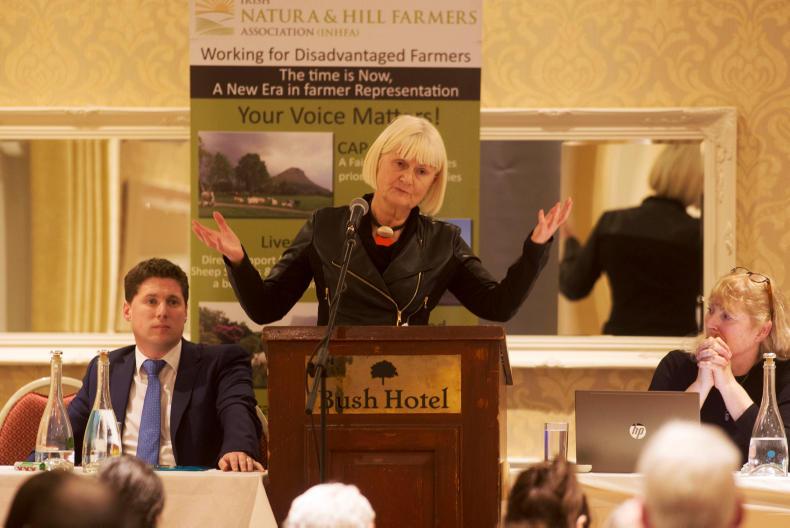
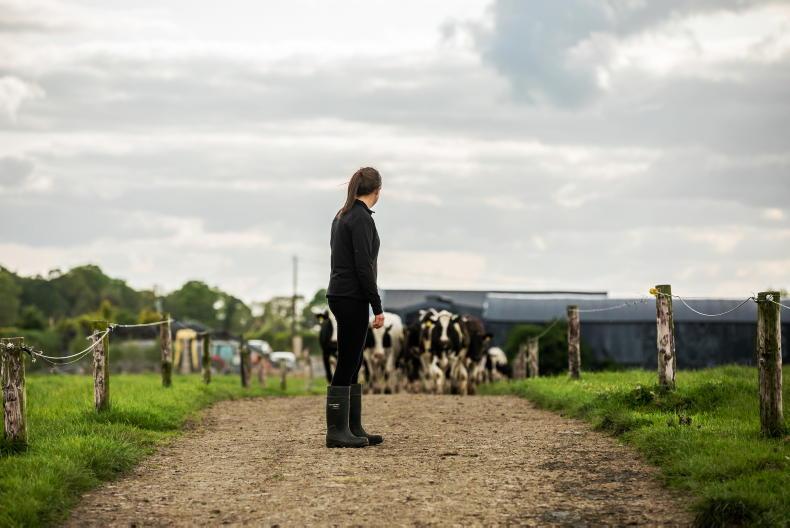
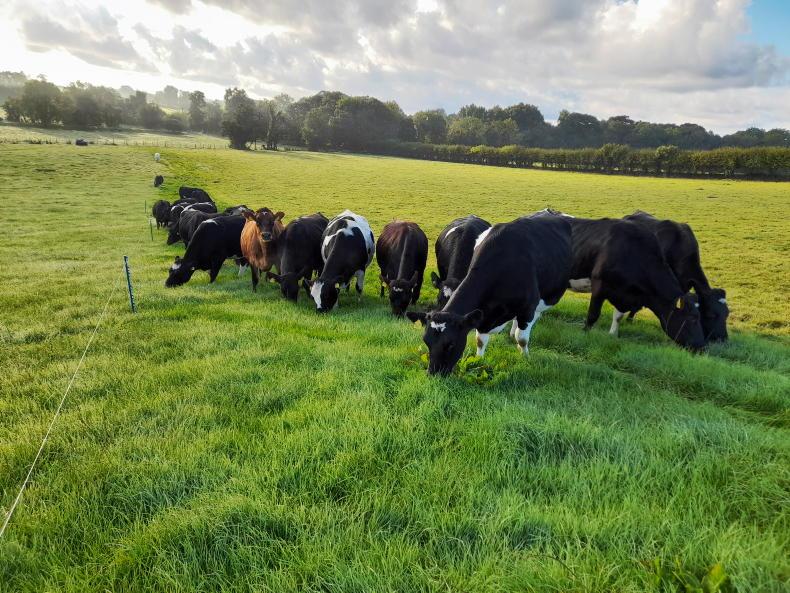
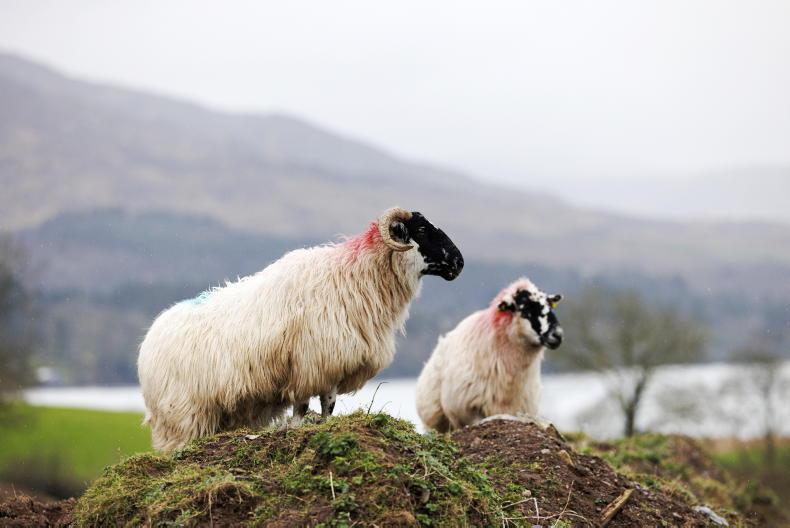
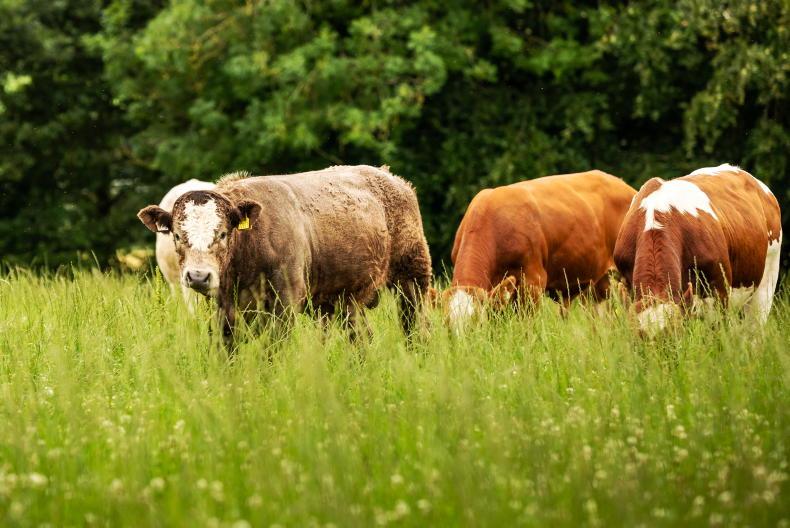
SHARING OPTIONS